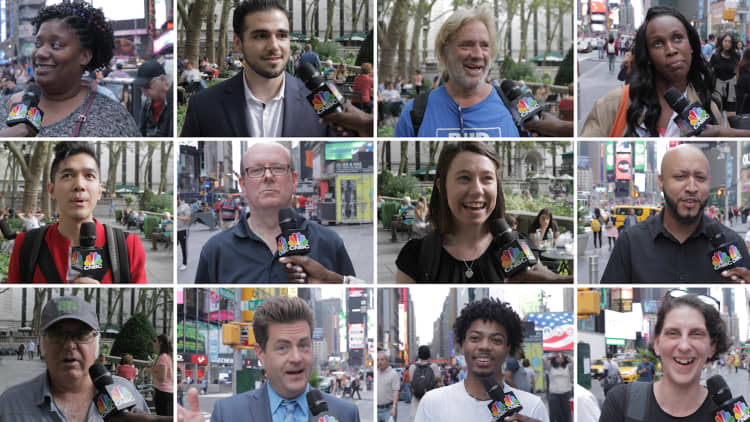Year after year, Google has been ranked as one of the top companies to work for, so it's no surprise that the tech giant receives roughly three million applications per year. With an acceptance rate of 0.2%, you'd have a better chance of getting into Harvard.
Google's careers page makes the process seem quite simple: "Become a Googler in three steps," it advertises. "Apply. Interview. Decide."
Below those headings, the veil begins to lift: "We interview differently."
Nowadays interviewees won't come across certain oddities like brain teasers, but Google remains an outlier when it comes to how precise and methodical its interviewing process is.
Is more really better?
Historically, Google hiring managers assumed that the more employees they had interview a single job candidate, the better the hiring decision would be.
That meant each applicant might be subject to as many as a dozen interviews. (Google CEO Sundar Pichai went through nine interviews in 2014 before getting hired as SVP of Product Management.)

"Hiring took six to nine months and people sat for 15 to 25 interviews. It was an awful experience," Humu CEO Laszlo Bock said at LinkedIn's Talent Connect Conference back in 2014. (At the time, Bock was SVP of People Operations at Google.)
But was that really the way to go? Google wanted to know, and unfortunately, it wasn't a Google-able question.
"Our early People Analytics team decided to look at the data to see how helpful and predictive each interview actually was," Hiring Innovation Manager Shannon Shaper wrote in Google's re:Work blog. "The team looked at a subset of our interview data over five years to determine the value of a single interviewer's feedback."
The 'Rule of Four'
The data showed that nine, much less 12, interviewers were far too many.
Shaper points out that there was a "diminishing return on interviewer feedback," and that "four interviews were enough to predict whether someone should be hired at Google with 86% confidence."
Hiring took six to nine months and people sat for 15 to 25 interviews. It was an awful experience.Laszlo Bockformer SVP of Product Management, Google
Data collected from Google's 2016 interviews indicated that 95% of the time, panels of just four interviewers made the same hiring decision as panels of more than four interviewers. Interestingly, a study conducted by The Behavioral Insights Team, a U.K.-based research firm, similarly recommended four interviewers per candidate.
That's how the Rule of Four came it be, and it has significantly reduced the average time-to-hire by about two weeks, saving employees "hundreds of hours in interviewing time," according to Shaper.
New candidate, same questions
To determine who gets hired, Google interviewers use a scientifically proven method called "structured interviewing," where employees prepare a list of rigorous and relevant questions, and then come up with a scoring rubric to match.
What separates this method from typical job interviews is that instead of asking questions catered specifically to a candidate's resume, the same set of questions are used to assess every candidate interviewing for the same job.
In a Google Partners podcast, Lisa Stern Haynes, Google's Global Staffing Lead and Senior Recruiter, says structured interviewing helps HR personnel anticipate what they think "a good versus a mediocre versus a poor answer is going to look like. It makes assessing candidates so much easier and so much more consistent."
When drafting questions, interviewers must take into account Google's four core attributes:
- General cognitive ability: Smart people who can learn and adapt quickly
- Leadership: People who can step into leadership roles, but also know when to step back once the need for their skills have passed
- Googleyness: People who show signs of comfort with ambiguity and have a collaborative nature
- Role-related knowledge: People who have the experience and background for the specific job they're applying for
Armed with the Rule of Four along with the company's massive data library, Google seems to have perfected just how much effort is required to weed out "toxic employees" and "false positives," while saving resources and capital at the same time.
Long story short, interviewing at Google is now less stressful than it used to be — at least for Google, it is.
Tom Popomaronis is a commerce expert and proud Baltimore native. Currently, he is the Senior Director of Product Innovation at the Hawkins Group. His work has been featured in Forbes, Fast Company and The Washington Post. In 2014, he was named a "40 Under 40" by the Baltimore Business Journal.
Like this story? Subscribe to CNBC Make It on YouTube!
Don't miss:



